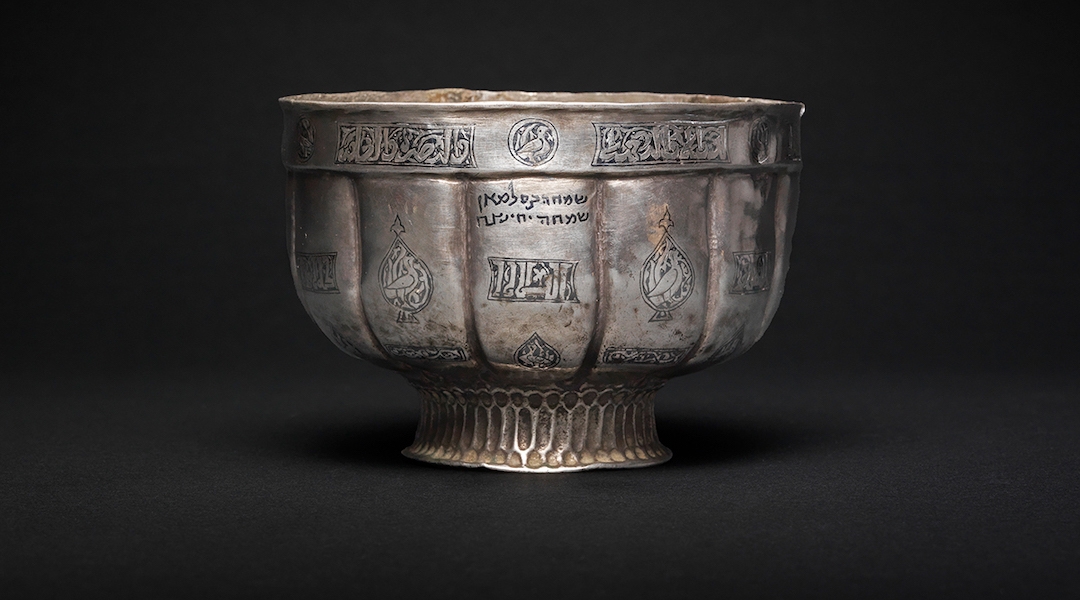Sotheby’s to auction earliest known kiddush cup
The artifact has an estimated value of $3 million to $5 million

Sotheby’s is auctioning what it says is the earliest known kiddush cup. (Courtesy of Sotheby’s)
(JTA) — A kiddush cup that may have been passed around the Friday night dinner table during the reign of Ghengis Khan will be available for auction this fall.
The rare remnant of the Silk Road, the ancient Asian trading route that was home to vibrant Jewish communities, is the oldest known Jewish artifact from the Middle Ages, according to Sotheby’s, which will put it on the auction block.
It is dated to the 11th or 12th century, a time when the Jews of Europe faced mass expulsion, exile and massacres during the era of the Crusades. Its inscription, which includes both Hebrew and Arabic, names its Jewish owner as “Simcha son of Salman.”
“This cup is an extraordinarily rare record of the existence and importance of Jewish communities in Central Asia in the Middle Ages, and of their cultural and artistic exchanges with the surrounding Islamic world,” said Sharon Liberman Mintz, Sotheby’s international senior Judaica specialist, in a press release.
The Arabic inscriptions on the kiddush cup, which would have been used for the blessing over wine at Shabbat meals, include a series of blessings for Simcha.
“Bearing inscriptions in both Hebrew and Arabic, the cup was not only used to sanctify Jewish ritual, but also embodied a shared artistic language across faiths, and its survival for nearly a millennium is truly remarkable,” said Liberman Mintz. “No other medieval Judaica artefact of this early date is known to exist.”
The kiddush cup, which has an estimated value of between $3 million to $5 million, will be auctioned in New York on October 29. Dubbed the “Cup of Joy,” it will go on display for the public at Sotheby’s in London from April 25 to 29.
Last fall, Sotheby’s also auctioned off a 1,500 year old stone inscription of the Ten Commandments. It sold for more than $5 million to an anonymous buyer who said they intended to donate it to an Israeli institution, according to The New York Times.















